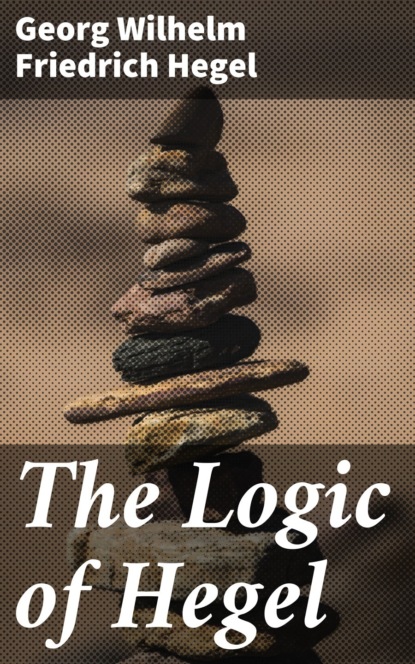Maht 610 lehekülge
0+
The Logic of Hegel
Raamatust
In «The Logic of Hegel,» Georg Wilhelm Friedrich Hegel presents a profound exploration of the nature of thought and reality, intertwining the realms of metaphysics, epistemology, and dialectics. This pivotal work is characterized by its dense, complex prose and innovative structural framework, which moves beyond mere abstraction to reveal the dynamic processes that govern the unfolding of knowledge. Hegel's dialectical method, emphasizing the synthesis of contradictions, situates this work within the broader context of German Idealism, marking a significant departure from Enlightenment rationalism while prompting future philosophical inquiry. Hegel, a key figure in 19th-century philosophy, was greatly influenced by the political upheavals of his time, particularly the French Revolution and the rise of modernity. His intellectual journey was marked by a systematic approach to understanding consciousness and being, which culminated in «The Logic of Hegel.» This treatise not only reflects his philosophical evolution but also engages with contemporaneous thinkers like Kant, fostering a dynamic dialogue that shaped modern thought. For readers intrigued by the interplay of logic and existence, Hegel's «The Logic of Hegel» is an essential text that offers deep insights into the workings of reality and our understanding of it. It is recommended for scholars, students, and philosophically-minded individuals seeking to engage with one of the most influential figures in Western philosophy.
In this enriched edition, we have carefully created added value for your reading experience:
– A succinct Introduction situates the work's timeless appeal and themes.
– The Synopsis outlines the central plot, highlighting key developments without spoiling critical twists.
– A detailed Historical Context immerses you in the era's events and influences that shaped the writing.
– An Author Biography reveals milestones in the author's life, illuminating the personal insights behind the text.
– A thorough Analysis dissects symbols, motifs, and character arcs to unearth underlying meanings.
– Reflection questions prompt you to engage personally with the work's messages, connecting them to modern life.
– Hand‐picked Memorable Quotes shine a spotlight on moments of literary brilliance.
– Interactive footnotes clarify unusual references, historical allusions, and archaic phrases for an effortless, more informed read.
